Interoception Sensory Processing Disorder (ISPD) occurs when the brain has difficulty processing internal body signals. Interoception is the sense that helps us recognize feelings inside our body, such as not feeling hungry or thirsty, not realizing they are tired, in pain, with temperature, or needing to use the toilet. When Interoception is not functioning properly, a child may struggle to understand these body signals, leading to various challenges.
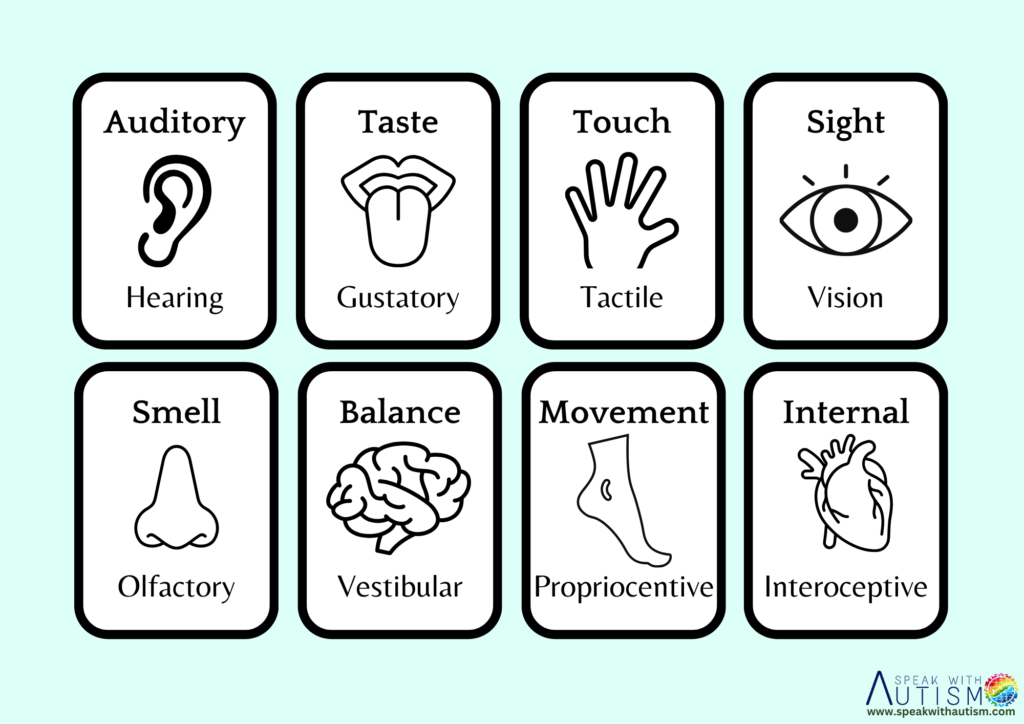
Table of Contents
Does Your Child Show These Signs?
- Your child keeps running and playing for a long time without feeling tired.
- Even after falling and getting hurt, they get up and start playing again without showing pain.
- They do not ask for food even after a long time without eating.
- While eating, they do not realize when their stomach is full and keep eating.
- They do not feel the urge to use the toilet, making toilet training difficult.
- They eat whatever is given to them without understanding their stomach needs.
If you notice these signs in your child, they may have Interoception Sensory Processing Disorder.
What is Interoception?
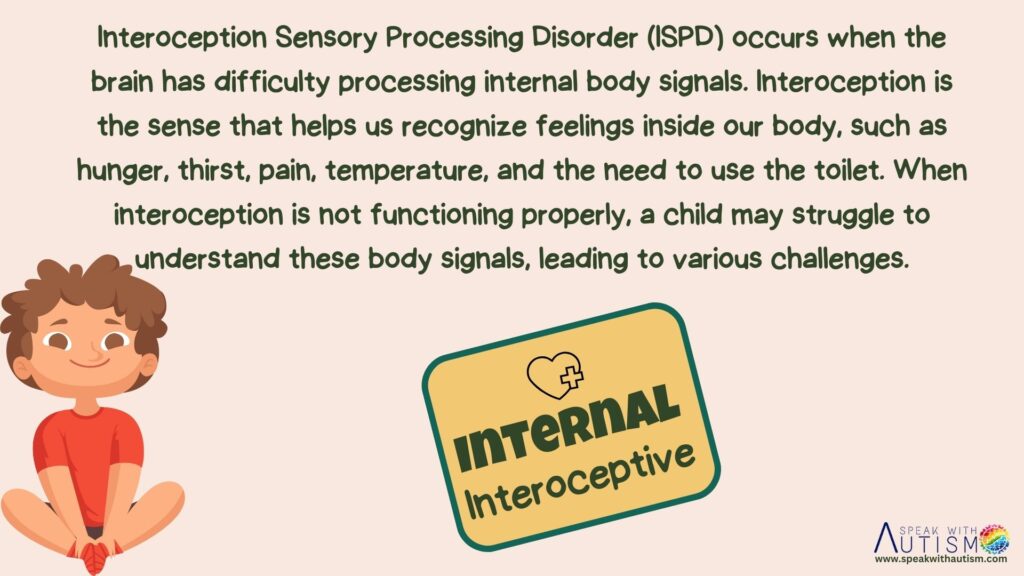
Interoception is a sense that helps us understand our internal body sensations. It allows us to feel:
- When we are cold or hot.
- When our bladder is full and we need to go to the washroom.
- When we are hungry or thirsty.
- When we are tired and need to rest.
Children with weak Interoception struggle with these natural body signals, which can make everyday activities challenging.
Signs of Interoceptive Processing Disorder in Autism & ADHD
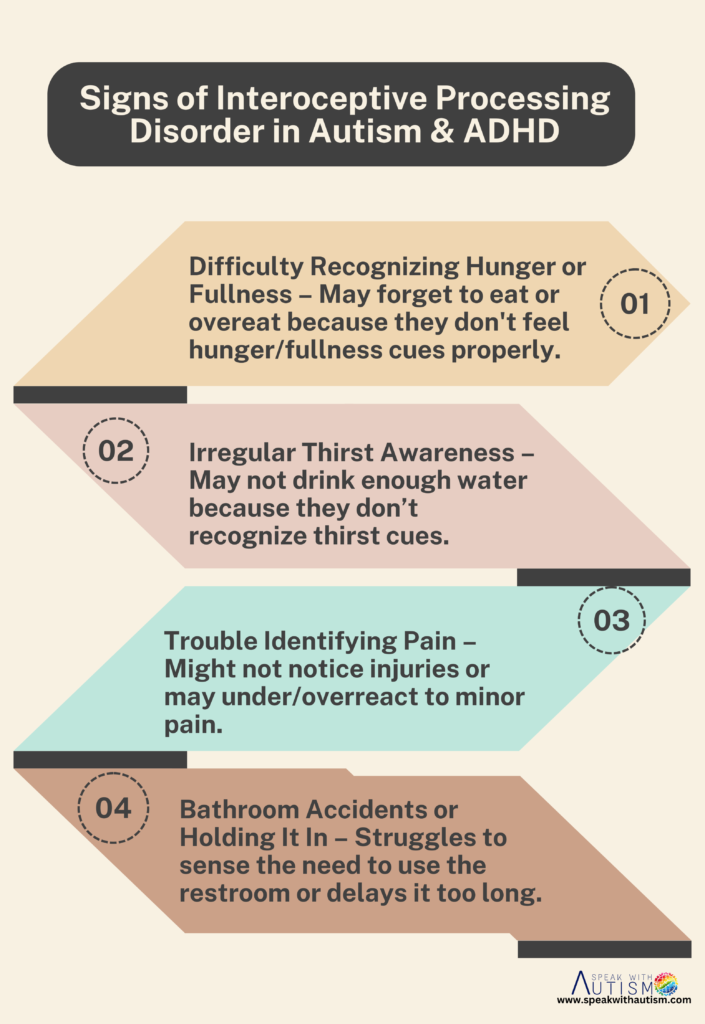
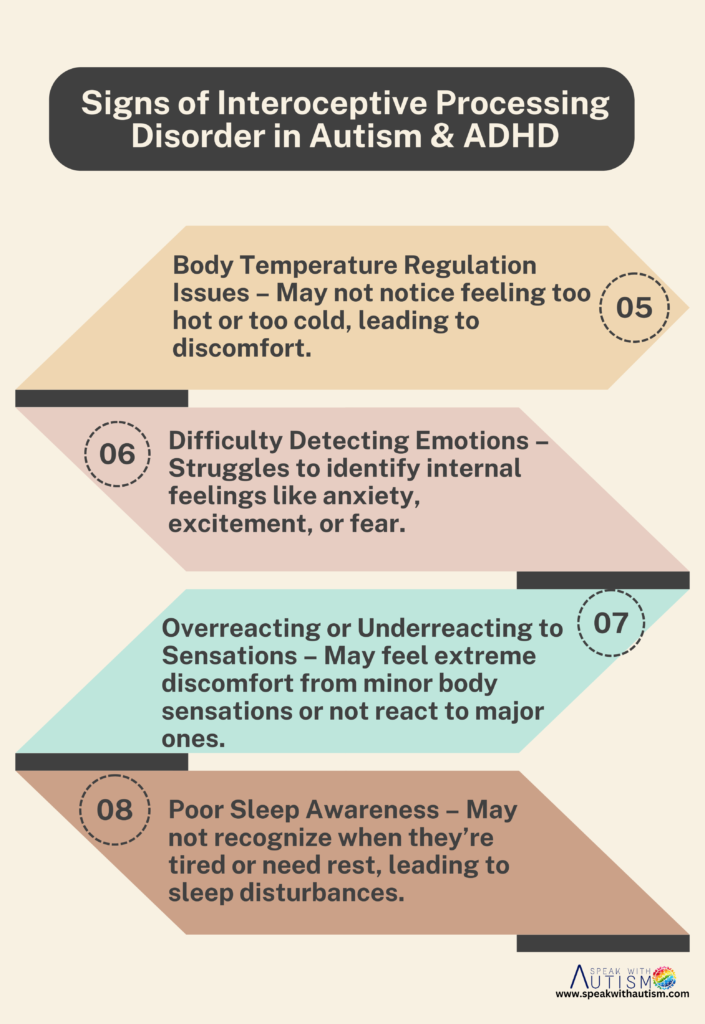
How Does Interoception Sensory Processing Disorder Affect Social & Emotional Development?
Children with weak Interoception may struggle to express their feelings and understand their body’s needs. This can lead to:
- Difficulty in understanding their own emotions.
- Challenges in social communication.
- Trouble recognizing others’ emotions.
In autism, Interoception issues are common, making it harder for children to regulate their emotions and engage in social interactions.
Why Should Parents Focus on Interoception?
Developing Interoception skills is essential for a child’s:
- Overall development
- Emotional regulation
- Social-emotional growth
Helping your child recognize their body signals can improve their independence, communication, and emotional well-being.
Activities to improve Interoception
1. Body talk and regulation
- Talk about body feelings with the child.
- Examples are: “Is your stomach rumbling? You’re probably hungry.”
- “You ran, now look your heart is beating faster.”
2. Using social stories
- Create social stories to explain emotions and physical feelings to children.
- Example: “Ravi felt hungry, there was a slight movement in the stomach.
3. Simple yoga and stretching
- Make the child feel the difference between tension and relaxation.
- “Now pull the hand – it’s getting tight. Now release – it’s relaxed.”
4. Mindfulness exercises
- Belly breathing: Place a light toy on the child’s belly and see how breathing makes the toy move up and down.
- This will help the child feel his body.
5. Teaching emotions and expressions
- Explain facial expressions through emojis or pictures.
- “If we get ice cream we’ll be happy, if we fall we’ll be sad.”
6. Color Zone Emotional Regulation System
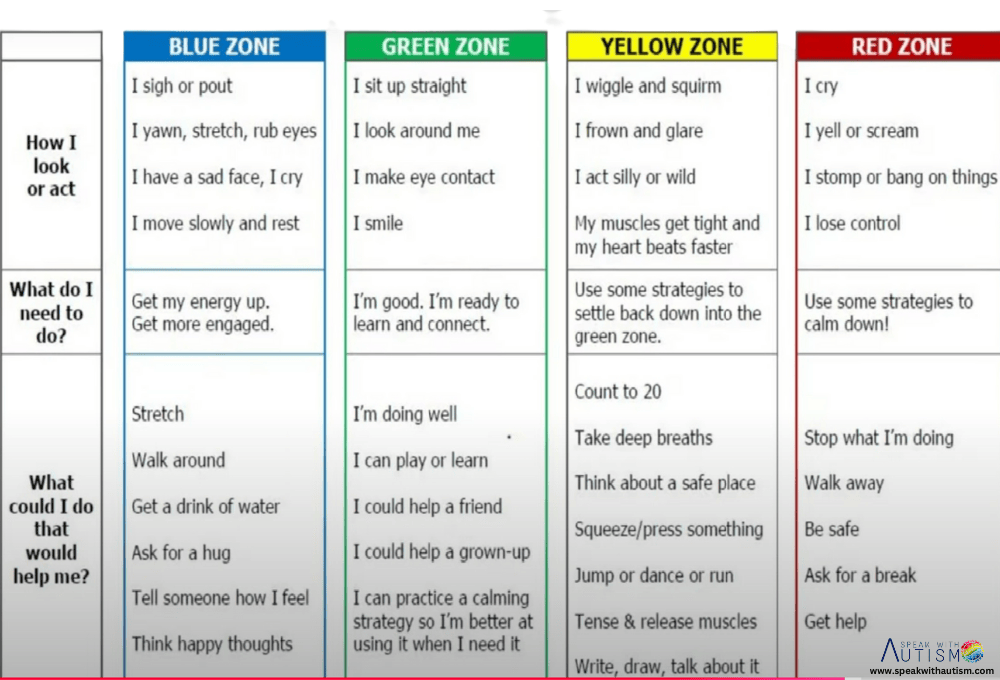
- Green Zone: Calm and ready (focused, happy)
- Blue Zone: Low energy (tired, bored)
- Yellow Zone: Slightly dysregulated (nervous, anxious)
- Red Zone: Extremely overwhelmed (angry, very upset)
- Teach children what to do if they are in the red zone (e.g. take a deep breath, drink water).
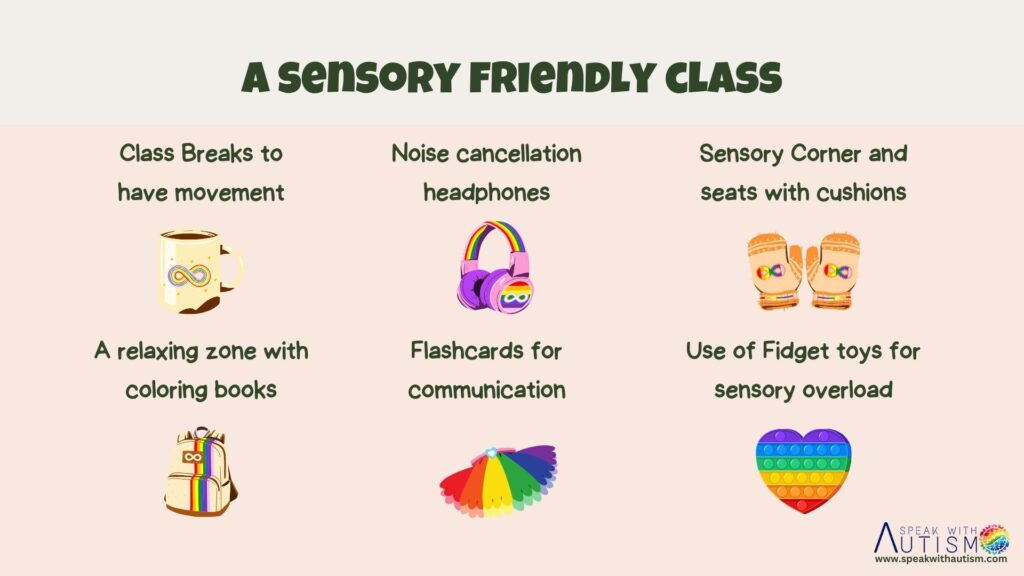
Conclusion
Interoception is an important sense, and to improve it it is important to involve children in everyday activities. The more we pay attention to their body signals and talk about their feelings, the better they will understand themselves and develop self-regulation.
Your idea is very correct that parents should understand the sensory needs of children and do activities for them at home. This way, children will be able to understand their bodies and emotions.
Frequently Asked Questions (FAQ’s)
What is Interoception sensory processing disorder?
Interoception is the ability to recognize and understand signals coming from inside the body, such as hunger, thirst, pain, fatigue, heartbeat, and other physical sensations. When a person’s Interoception sensory processing is not working properly, he or she cannot recognize or understand these signals properly.
What is the relationship between Interoception and other sensory systems?
when a child feels overwhelmed by noise due to an auditory sensory disorder, his or her physical experience is also affected. This is related to Interoception because the feeling of being overwhelmed is an internal response to the body
What are the Symptoms of difficulties in Interoception sensory processing disorder?
If a child has problems with Interoception sense, he or she may experience:
Loss of appetite or thirst
Difficulty recognizing heat, cold, or pain
Difficulty understanding emotions
Difficulty in body regulation (such as not responding to a fast heartbeat)
What are the Signs of Interoception Sensory Processing Disorder?
A child with Interoception Sensory Processing Disorder (ISPD) may:
Do not feel hunger or thirst and forget to eat or drink.
Overeat because they do not recognize when they are full.
They struggle with toilet training because they do not feel the urge to go.
Not feeling pain properly, leading to a high pain tolerance.
Not realize they are tired, causing excessive movement and difficulty resting.
Have trouble identifying emotions, leading to emotional outbursts or meltdowns.
How Does Interoception Sensory Processing Disorder Affects Social & Emotional Development?
Children with weak interoception may struggle to express their feelings and understand their body’s needs. This can lead to:
Difficulty in understanding their own emotions.
Challenges in social communication.
Trouble recognizing others’ emotions.
In autism, Interoception issues are common, making it harder for children to regulate their emotions and engage in social interactions.
Why is Interoception Important?
When a child’s Interoception sense is not well-developed, they
Do not realize when they need to use the toilet.
Find toilet training very difficult.
Do not feel pain like other children.
Do not recognize when they are tired and need rest.
